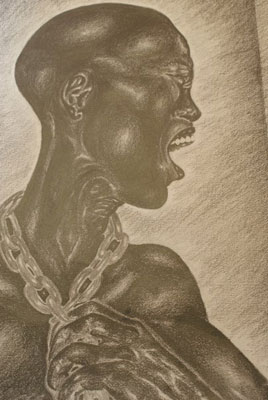All Nonfiction
- Bullying
- Books
- Academic
- Author Interviews
- Celebrity interviews
- College Articles
- College Essays
- Educator of the Year
- Heroes
- Interviews
- Memoir
- Personal Experience
- Sports
- Travel & Culture
All Opinions
- Bullying
- Current Events / Politics
- Discrimination
- Drugs / Alcohol / Smoking
- Entertainment / Celebrities
- Environment
- Love / Relationships
- Movies / Music / TV
- Pop Culture / Trends
- School / College
- Social Issues / Civics
- Spirituality / Religion
- Sports / Hobbies
All Hot Topics
- Bullying
- Community Service
- Environment
- Health
- Letters to the Editor
- Pride & Prejudice
- What Matters
- Back
Summer Guide
- Program Links
- Program Reviews
- Back
College Guide
- College Links
- College Reviews
- College Essays
- College Articles
- Back
The Underground Railroad
Do you know what it is like to lose everything? To be beaten and starved? Do you know what it is like to be chained and sold? Of course not, you are free. Freedom cannot be taken by force because it is an inalienable right given to us at birth from God. Even so it still remains, to this day, a controversial subject. However, the African slaves that were taken from their homes, sailed across the Atlantic Ocean and were brought here to the early America’s did lose everything; they were beaten and starved and chained and sold. Clear back in the 1500’s all the way up to the mid 1800’s Europeans shipped over 12 million African slaves to the Western Hemisphere. Nearly 2 million of them died along the way. But I will not speak of them as numbers but as the people that they were. Freedom is the desire of all great souls. These were the people that stopped at nothing to get it.
The Underground Railroad was not a railroad at all; it was a series of houses, shops and hotels that would lead runaway slaves to their desired freedom. These buildings were known as stations and the slaves as cargo or passengers. Some of the people that helped the slaves escape were white and later were often threatened by others. The people that helped them or led them were known as conductors. It was against the law to help fugitives but many did it anyway because they believed in equality and true justice. An Abolitionist was a person who was against slavery and fought to end it. I think, however, that there were abolitionists on both sides of this argument. There were the abolitionists to end slavery and there were the abolitionists who wanted to end those who sought to end slavery. Therefore, making abolitionists of events and abolitionists of people. You may ask which is worse and I tell you that one is only better than the other when it understands the others point of view. But when looking at the subject of slavery there are many points of view. The next step is to find the view that is not only biblically right but morally right as well. To do so one must judge these things not with his eyes but with his heart, which is what many of the abolitionists did. They knew they were breaking the law but sometimes you have to break man’s law to abide by God’s.
The Underground Railroad was more than a road to their salvation; it was a path to a new life. People whose God given freedom was but a distant dream deserved this new life. A new life where they could be people, where they could be free and it is to these people that we owe our very lives and our extensive history!
“They do this to you to prove that you no longer belong to God but to a man.” – Prince Olaudah Equiano, describing a brand on his chest.

Similar Articles
JOIN THE DISCUSSION
This article has 0 comments.
